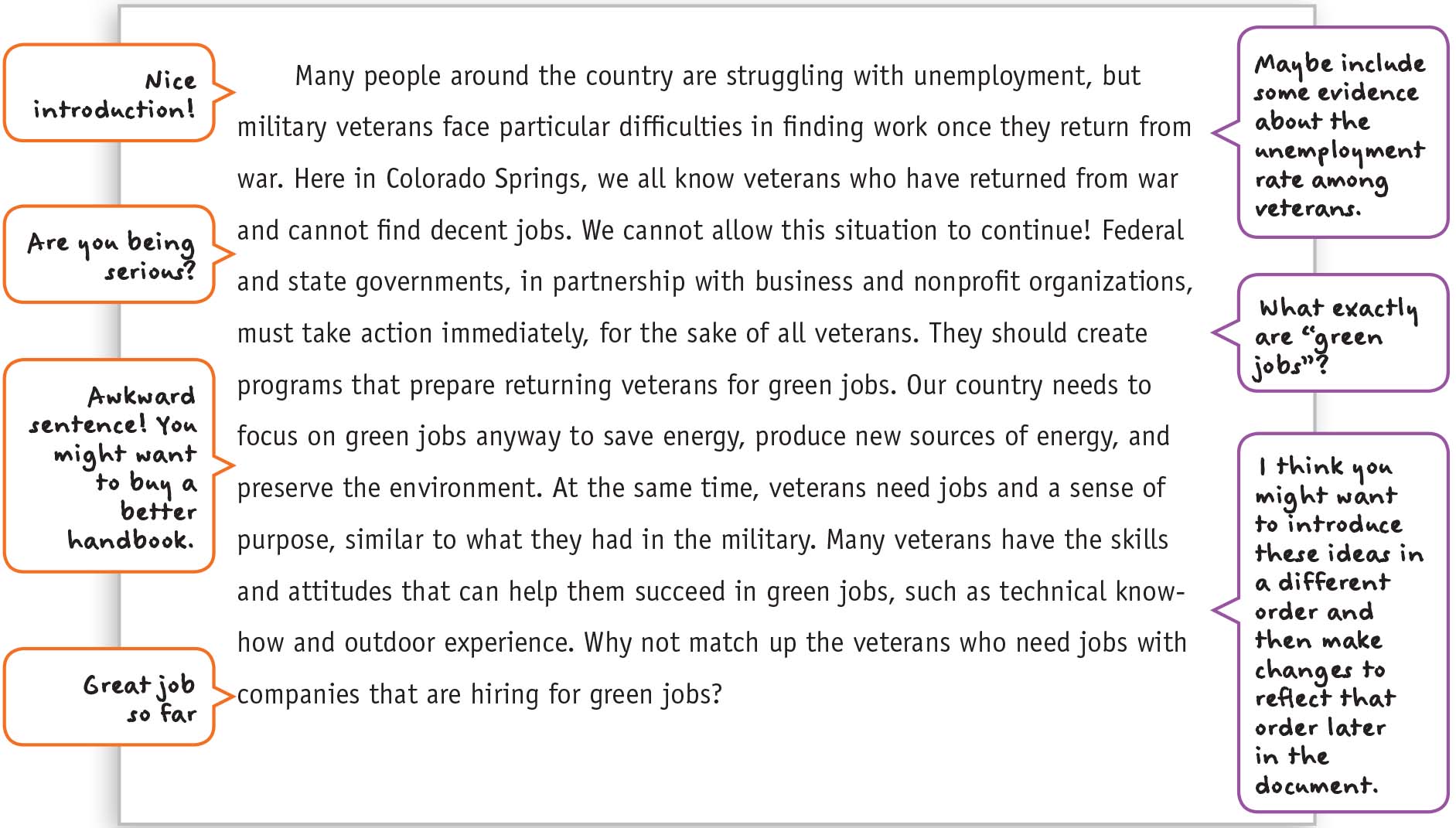Consider Your Needs as a Writer
Whenever you ask for feedback from other writers, keep the following guidelines in mind.
When you ask for feedback on a draft:
- Be clear. Tell your reviewers where you’d like them to focus. For example, let them know that you are struggling with the transition from one point to another or that you would appreciate feedback on your conclusion.
- Be reasonable. Your reviewers have more to do in life than review your draft. Don’t expect — or ask — them to spend more time reviewing a draft than you spent writing it. For that matter, don’t expect them to put more than half an hour into a review — if that.
- Be prepared. Provide a draft that is easy to review. If you are asking the writer to comment on a printed draft, format it with double-spaced lines and wide margins. If you are providing a digital draft, make sure the reviewer can access, read, and comment on your file easily.
When you receive feedback on a draft:
- Be open to criticism. Don’t dismiss constructive criticism as a problem with the reviewer’s comprehension. A reviewer might make poor suggestions for revision, but it’s more likely that he or she is reacting to a problem in the draft. Even when the suggested revision is inappropriate, it might point to an area that needs attention.
- Be willing to ask questions. If you aren’t sure what a reviewer’s comments mean, ask for clarification.
- Be willing to change. If a reviewer offers a critique of your argument or ideas, consider addressing it in your document. You will make a stronger argument if you tell readers about alternative ways of looking at an issue — particularly when you can counter the alternatives effectively.
- Be fair to yourself. It’s your draft. Don’t feel obligated to incorporate every suggested change into your draft.

Ineffective and effective feedback on Megan Martinez’s first draft
[Leave] [Close]